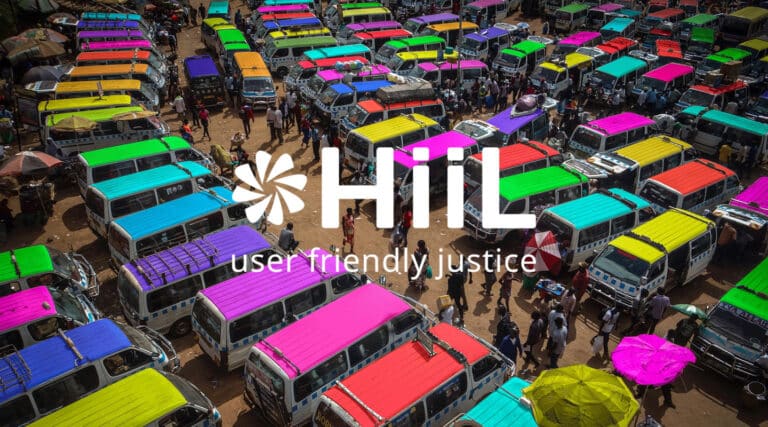HIIL measured justice in Uganda with SurveyCTO


Meet The Hague Institute for Innovation of Law (HiiL)
HiiL is a social enterprise with a mission to make the justice system more equitable. HiiL works in partnership with public officials, justice sector professionals, entrepreneurs, and investors to promote people-centered justice. They work towards the goal of pushing forward the United Nations’ Sustainable Development Goal 16: Promote justice, peace and inclusive societies through their focus on SDG16.3: Promote the rule of law at the national and international levels and ensure equal access to justice for all.
Founded in 2005, HiiL brings user-centered design and thinking to the areas of justice and policy formation. They use high-quality data to inform policymakers around the world on gaps in justice systems, and how to build innovative solutions to bridge those gaps so that justice is accessible for everyone. HiiL’s aim is that by 2030, 150 million people will have been able to prevent or resolve their pressing justice problems.
Offices: The Hague, Netherlands
Sector: Nonprofits + NGO
Use case: Academic Research, International Development
Employees: 50-100
Features used: Unique IDs, web forms
Website: https://www.hiil.org/
The Challenge: Making justice user-friendly and equitable in Uganda during the COVID-19 crisis
To reach their big ambition of making justice systems work equitably for all people from all backgrounds, HiiL needs reliable, accurate data. They seek to learn more about the gaps between formal justice institutions like police and courts, and the informal institutions that many real people around the world often use in their place, like consulting community elders or creating informal tribunals to settle disputes.
HiiL relies on surveys to gather data to discover the everyday problems that people face with law, justice and related institutions. All of HiiL’s surveys are done at the national level with large sample sizes, and they always work with local enumerators (data collectors) who go into the field and meet with people face-to-face using the computer-assisted personal interviewing (CAPI) method. Typically, enumerators carry mobile devices with SurveyCTO Collect installed on them, and conduct surveys face-to-face, no matter how rural the area.
However, in 2020, HiiL was met with the COVID-19 crisis, forcing them to rethink their tried-and-true CAPI data collection mode. It was hard to get people out on the ground in many areas, and certain projects, particularly one called the Justice Innovation in Uganda project, had a complex survey design that didn’t translate well into an online environment.
The Solution: SurveyCTO’s web forms and Unique ID feature
To solve the problems of incorporating pandemic precautions into what had been a complex CAPI workflow, HiiL used SurveyCTO functionalities in creative ways.
To gather data, HiiL connected with the project’s Ugandan respondents through social media surveys. HiiL created web forms in SurveyCTO and used a unique two-wave methodology to first ask respondents about their justice problems in one wave, and then re-ask them how they resolved those problems a few months later in the second. “We wanted to capture a before-and-after picture to see what problems people were experiencing, and how they were resolved a few months later,” says Dr.Gramatikov.
Another key tool was the ability to assign unique IDs to respondents, and then to attach that unique ID to the SurveyCTO web form URL, enabling HiiL to send respondents a URL that had their unique identifiers already included. This feature, designed for longitudinal surveys, proved to be useful for HiiL in connecting the data across their survey waves. Each respondent had a unique survey URL that only the correct respondent could access. It was also straightforward for HiiL to connect respondents after the first wave with second-wave data through simple concatenation in a spreadsheet, and create a unique URL to get the base of their SurveyCTO web form.
The Results: Powering the Justice Innovation in Uganda project through the pandemic
Despite the challenges of a global crisis, HiiL successfully promoted justice in Uganda by using SurveyCTO’s feature options in innovative ways to respond quickly to changing circumstances, and update their data flows as needed. With the above processes integrating key product capabilities, they improved their survey procedures by keeping data clean and accurate, eliminating duplicate entries, and ensuring that only a specific user could fill in a particular question. The standardization also means the team can introduce their survey designs into new areas of the world with just a few minor adaptations, at a fraction of the cost.

